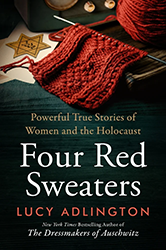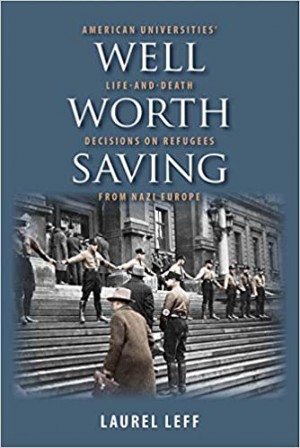Upon learning that a high-fashion salon had operated at Auschwitz-Birkenau, fashion historian and novelist Lucy Adlington wanted to know more.
Adlington relied on the path-breaking research of Dr. Lore Weinberg Shelley, an Auschwitz-Birkenau survivor and a psychologist, to guide her. Shelley had archived the correspondence between twenty-five female dressmakers, who had for two years staffed an Auschwitz-Birkenau “Upper Tailoring Studio.” Fascinated by this unique conjunction of couture sewing in the midst of industrialized murder, Adlington laboriously sought out and interviewed the last surviving former camp dressmakers.
The Commandant’s indulged wife first had the idea for the salon, and its privileged clientele included the wives of high-ranking SS officers, valued camp guards, and even Berlin’s upper-crust elites. There were so many client orders for custom-made, high-style garments that a wait of six-months was standard. Bolts of high-end fabric came at no cost from ransacked clothing and department stores in twenty-four occupied countries.
Strictly confined to a stark dormitory, the dressmakers survived on only a bit more food than other starving prisoners. They had to work twelve to sixteen hours daily and meet a weekly quota of two completed garments. Failure could mean being sent back to lice-ridden horrendous barracks, “a perverted new kind of civilization.”
In the evenings, despite rampant exhaustion and hunger, many of the women huddled in secret study groups to study languages together. They “proved their minds could not be contained by barbed wire.” Workshop leaders tried endlessly to add more seamstresses to the ranks so as to save lives.
Adlington provides an original detailed study of a little-known aspect of the Holocaust. Her artfully written book illustrates how much can and ought to be learned from endurance of crimes against humanity.
Professor Emeritus of Sociology, Professor Arthur B. Shostak is the author in 2017 of Stealth Altruism: Forbidden Care as Jewish Resistance in the Holocaust. Since his 2003 retirement from 43 years teaching sociology he has specialized in Holocaust studies.



